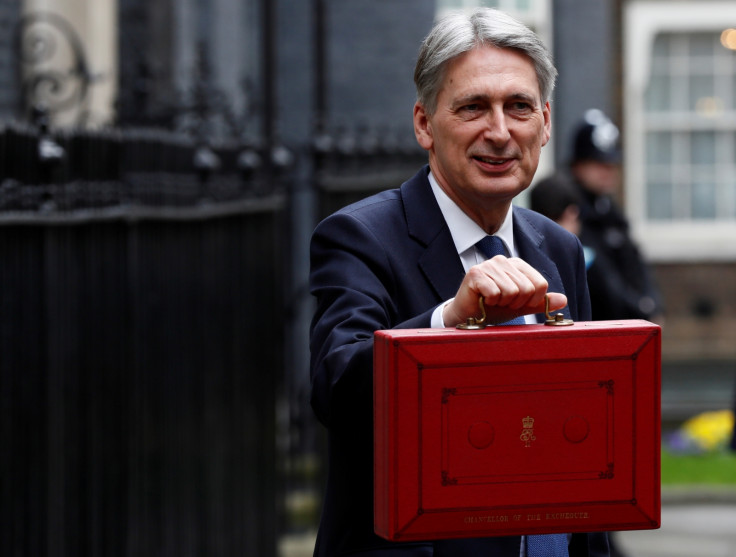Government defends Budget 2017's 'slap in the face' rise in NICs for self-employed
Chancellor Philip Hammond repeats 2% increase for workers will help bring fairness to tax system.
The government has rejected calls to reconsider a heavily criticised tax hike for the self-employed unveiled by Chancellor Philip Hammond in his Spring Budget 2017.
The increase in National Insurance contributions (NICs) for self-employed workers was condemned as a tax on the "white van man" as well as "Britain's hardest working people" following Hammond's Budget speech.
Several Conservative MPs, including Tom Tugendhat and Anne-Marie Trevelyan, spoke out against Hammond's plans to increase Class 4 NICs by 2% to 11% by 2019, resulting in an average rise of £240 ($291) for nearly 1.6m workers.
The increase also directly contradicts a 2015 promise made by former Tory Prime Minister David Cameron, who said that there would be no rise in NICs or VAT.
An old tweet Cameron from 2015 in which he condemned Ed Miliband for not promising to rule out raising NICs was retweeted by the former Labour leader on the day of the Budget. A similar 2015 tweet from former chancellor George Osborne also exists.
In an interview with Sky News, Hammond repeated his justification that the rise "undermines the fairness of the tax system" he made while delivering his speech in the House of Commons.
"It's only right and fair we should take a small step to closing the gap between the treatment of employed and self-employed people," he said.
"No conservative likes to increase taxes, National Insurance, anything else. But our job is to do what needs to be done to get Britain match-fit for its future."
I've ruled out raising VAT. Why won't Ed Miliband rule out raising National Insurance contributions? Labour always puts up the Jobs Tax.
— David Cameron (@David_Cameron) March 25, 2015
Conservative pledge on tax: no increases in National Insurance – nor an increase in its ceiling above the higher rate threshold
— George Osborne (@George_Osborne) April 29, 2015
Treasury Chief Secretary David Gauke also insisted there will be no U-turn from the government over the NICs increase, reiterating Hammond's defence that it will help bring "fairness" to the current tax system.
Speaking to BBC2's Newsnight, Gauke said: "At a time when – unlike what has happened in the past – essentially the benefits that the self-employed receive for their contributions are largely the same as employed people do, it is wrong that employed people pay a lot more in National Insurance contributions."
The move, which affects workers earning between £8,060 and £43,000 a year, is expected to raise £145m for public services.

Commenting on the NIC increase, Julian Jessop, chief economist at the Institute of Economic Affairs, said: "It is right that the self-employed and employed should pay similar National Insurance Contributions – the government should not set tax rates that artificially favour one form of employment over another.
"However, it would have been better to level the playing field by cutting NICs for the employed rather than raising those for self-employed. NICs are a tax on jobs and wages and reducing their burden would help many lower-income households."
Gerry Morrissey, head of the BECTU union, added: "This is a slap in the face for thousands of our freelance members, who have been hit by an unfair and unjustified increase in tax. Self-employed workers will be paying almost the same employment taxes as secure staff, without employee benefits, and the security, that staff have."
© Copyright IBTimes 2025. All rights reserved.






















